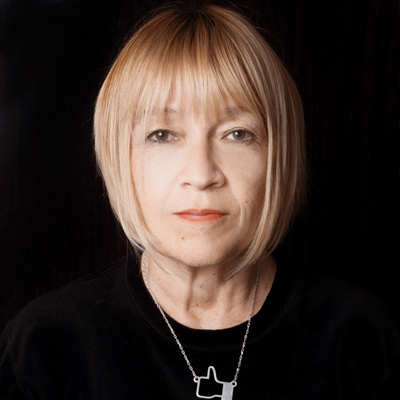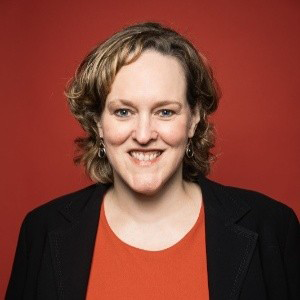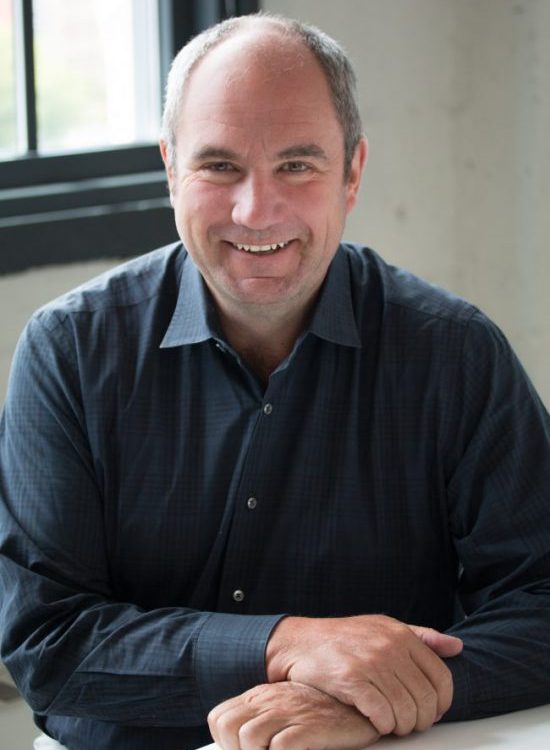Follow up: B2B Content Marketing Workshop
September 27, 2018An Interview with Scott Belsky
October 26, 2018MIMA’s annual Summit conference will be held at the Radisson Blu, Mall of America on October 29th, 2018. A new location and hands-on workshops will invigorate the offering. As usual, Twin Cities marketers can expect amazing networking, a great day of insights and the quality programming for which MIMA is known.
Our two keynotes, Cindy Gallop and Scott Belsky will bring world-class insights to Summit. We’re excited to hear their innovative and honest thoughts on marketing, advertising, and entrepreneurship.
MIMA recently chatted with Cindy Gallop. We hope you enjoy this sneak peek of her upcoming visit and we are pretty sure you will not want to sleep in for her morning keynote.
MIMA: Cindy, you are an advertising industry veteran, having been a chair for BBH (Bartle Bogle and Hegarty) in New York and named Advertising Woman of the Year. You founded IfWeRanTheWorld and MakeLoveNotPorn. You are also a frequent speaker and consultant. What do you consider your greatest career accomplishment and what’s upcoming for you?
Cindy: To be honest, I think I’ve got everything left to do. Everything that I believe in and that I am working on still has a very long way to go. I passionately love our industry. I passionately love advertising. I want to see our industry re-invent itself for a much more successful future. I want to see it do that by really understanding what gender equality, diversity and inclusion can bring to the table. On both of those fronts I am working hard to do everything I can to help people change the industry from within and that is not happening as quickly as I’d like. We still have a long way to go.
In terms of my own start-ups – IfWeRanTheWorld came out of my belief that the future of business is doing good and making money simultaneously. Therefore, the business model of the future is Shared Value + Shared Action = Shared Profits, I was working on that concept when MakeLoveNotPorn, took off. I simply couldn’t run both start-ups at the same time.
With MakeLoveNotPorn, I am taking on a huge challenge. By starting the world’s first social sex video sharing platform I am trying to socialize sex. To make it easier for people to talk openly and honestly about sex while promoting good sexual values and good sexual behavior. Something that is badly needed. I am passionately determined to drive change in these areas and I will be happy spending the rest of my life working on these projects.
MIMA: You’ve mentioned that social media companies are run by people who essentially hate advertising and their approach to how their platforms work is indicative of this. As marketers, what role can we play to change these existing models and not simply passively consume them?
Cindy: I am very keen to talk about this at MIMA Summit. I see huge opportunities in the digital realm for a completely different approach to how our industry works with technology to achieve what we need to achieve for our clients. To be frank, I think a lot of the reasons we are not seeing real creativity and innovation and disruption applied in this area is because of the dominance of the white male lens across everything. Every one of those big tech platforms that dominate our digital landscape and dominates the future of our industry, were founded by white men. These men are not the primary consumers and purchasers of everything – we already know this. They are also not the primary targets of online abuse, harassment, and online and offline sexual assault and rape and therefore, they haven’t designed for it. When you bring in the lens of people who are far more at risk – women, and people of color, that is when you design for security, privacy, confidentiality, and safety as well as design for a far more empathetic, and relevant and emotionally satisfying and connecting experience.
I recommend to all those in our industry who are “other,” i.e. not the white men who dominate the prevailing narrative, to look at what they would create, invent and innovate instead. It is only by building those ventures and demonstrating there are different ways of doing things that we can shift the industry away from this stranglehold where nothing is working very well for anybody.
MIMA: You believe that tapping into the power of women and people of color will be what transforms the advertising and marketing world for the better. What do you say to marketing/advertising leaders wondering, “How can I be a part of the solution?”
Cindy: I think the answer to that lies in your location. I have had this conversation with leaders in the industry in other parts of the United States that are not New York, Los Angeles, and San Francisco. I think there is a huge opportunity to shift the center of gravity for creativity and innovation away from the coasts. Most especially because of the appalling lack of quality of life and the horrifying expense of living in New York, San Francisco, and LA. I would love to see a specific initiative by Minneapolis (and other non-coastal centers) to leverage the fact that the cost of living is cheaper, and the quality of life is way higher. The population of creatives and innovators is absolutely there to really shift the center of gravity of our industry away from Madison Avenue. This obviously speaks to women who want to balance family life with working. It should speak to anybody who wants to find a different way of working that is not the macho work culture – evenings, weekends hamster wheel that operates on the coasts. And I think the environment and different approach to how you might design and structure a business and how you work, is something that I would use to attract people to start their ventures and join existing ones in Minneapolis.
MIMA: If you are a job seeker, on the other hand, how do you disrupt the legacy hiring processes and break through the conscious or unconscious biases?
Cindy: Take all of the creativity that people say they want to bring to their roles in this industry, and apply that to finding your next job. First off, don’t go looking for a job that exists. Invent your own job. Decide where you’d love to work, research the hell out of that place. Identify what you think is missing, that they aren’t doing that you could do brilliantly. Write your own job description. Create an argument for why they should hire you to do this. Then find an equally creative way to make an impression and get them to notice you. I am all about communication through demonstration. If you feel you have something to offer a company, demonstrate it in a way that gets their attention.
MIMA: You are known for your fearless approach and your mantra “You will never own the future if you care what people think.” Has this always been easy for you to live by? Any advice to help other people – especially young professionals – learn the fine art of not caring what others think while still being professional?
Cindy: I would say that I am particularly enabled to operate like this since I left the corporate world in 2005. I can be outspoken because I don’t work for an agency that is owned by a holding company. I don’t care what people think about what I say. I do encourage people to articulate what they think within the context of their existing work environment. It is how you find out if what you contribute is really valued. If you articulate these views and they aren’t welcome, then get the fuck out – there is no point working there. Saying what you think, enables you to realize what you think. Especially as women, we spend our days being mansplained to, manterrupted, ignored and actively disrespected. It causes us to retreat and not speak up around a client strategy or piece of work. Once you find out what you think that will benefit your career.
MIMA: You were in Minneapolis seven years ago giving a presentation on the future of advertising. Looking back at the past seven to eight years, what positive changes have you seen take place in our industry?
Cindy: I am going to be incredibly depressing. From an institutional perspective, virtually none. The most positive thing, to quote Peter Finch in the movie Network, “We’re mad as hell and we’re not going to take it anymore.” The most positive thing could be women, people of color and everyone who feels “other” are becoming passionate about the industry and making changes. They are starting their own businesses and being proactive about assisting each other when the institution as a whole is not.
Want more? Follow Cindy on Twitter @cindygallop. And if you haven’t yet, get your Summit ticket to see her in Minneapolis on October 29.
Interview by Gina Micek of the MIMA Marketing Committee.



